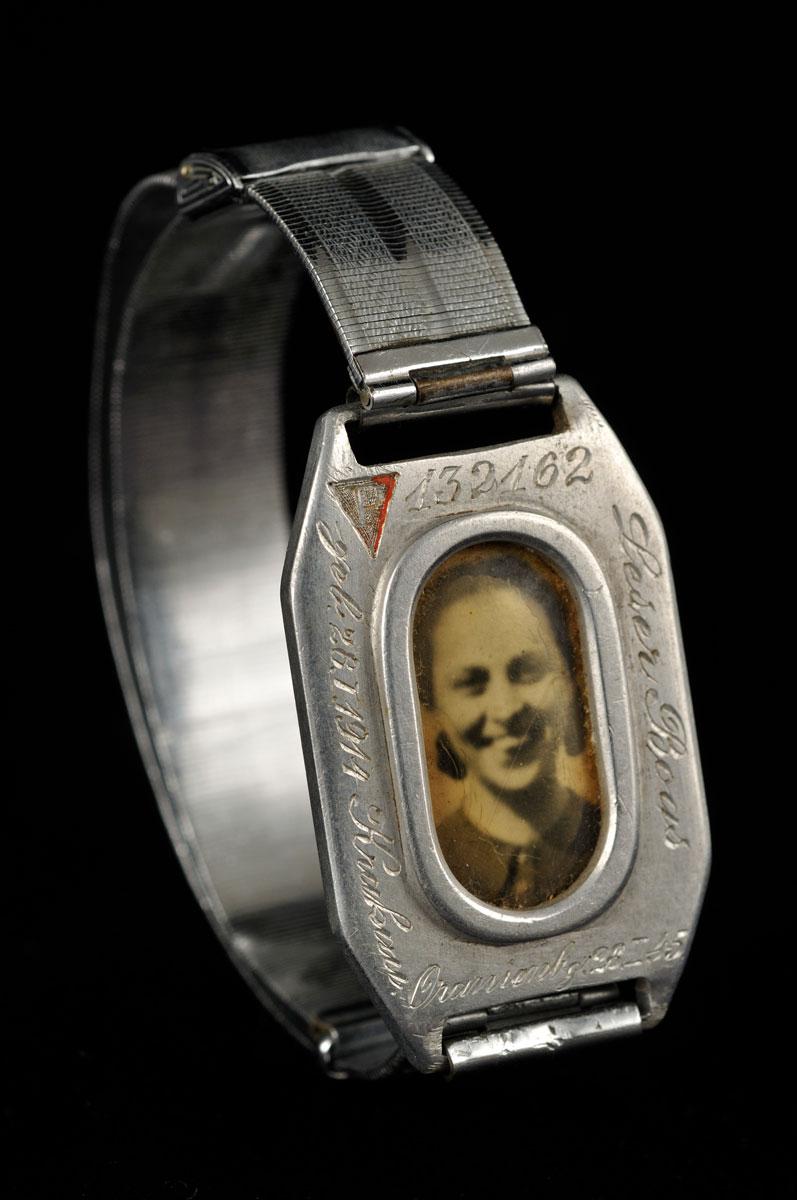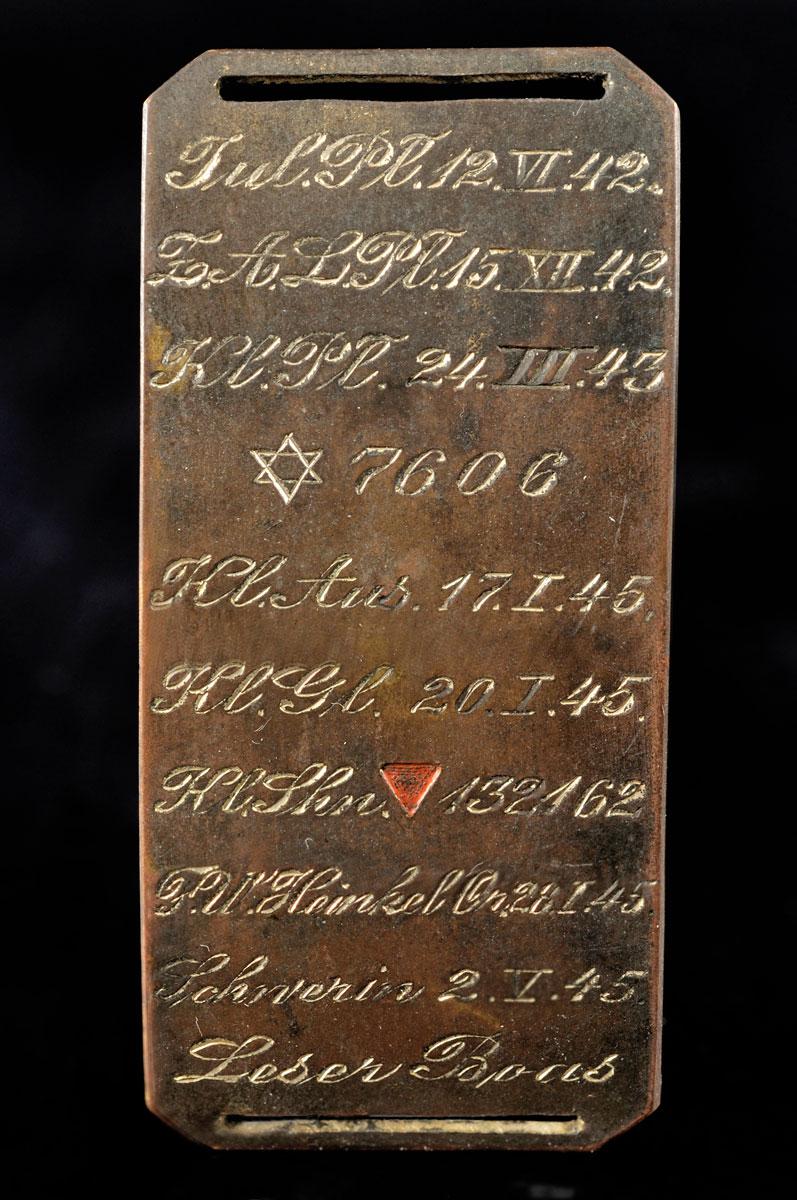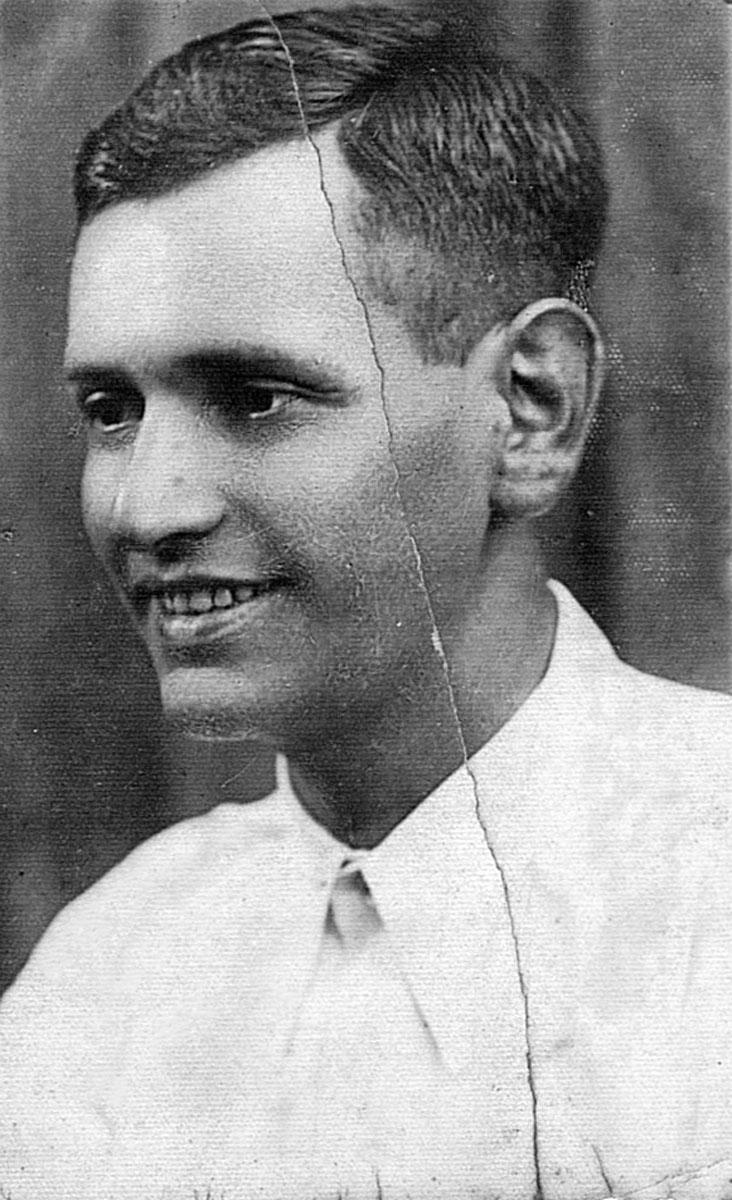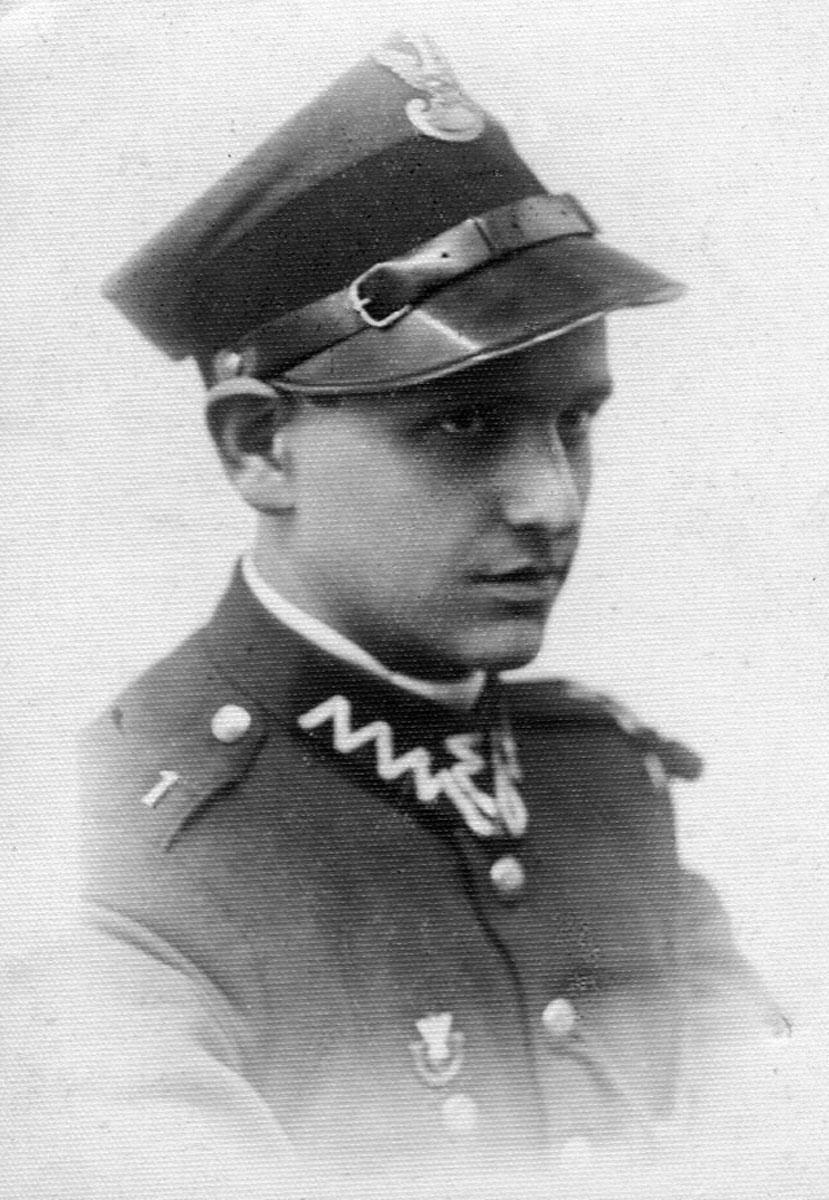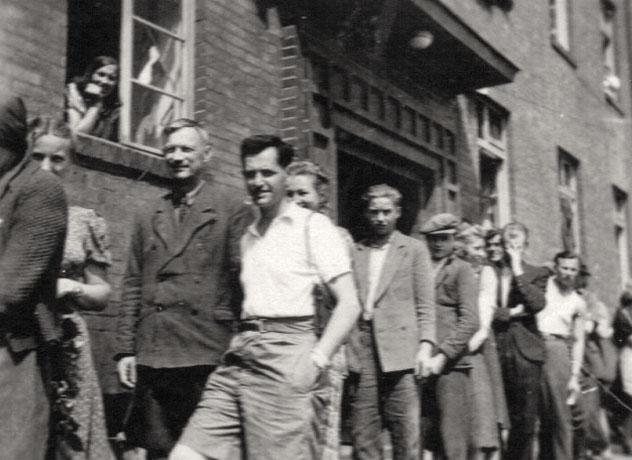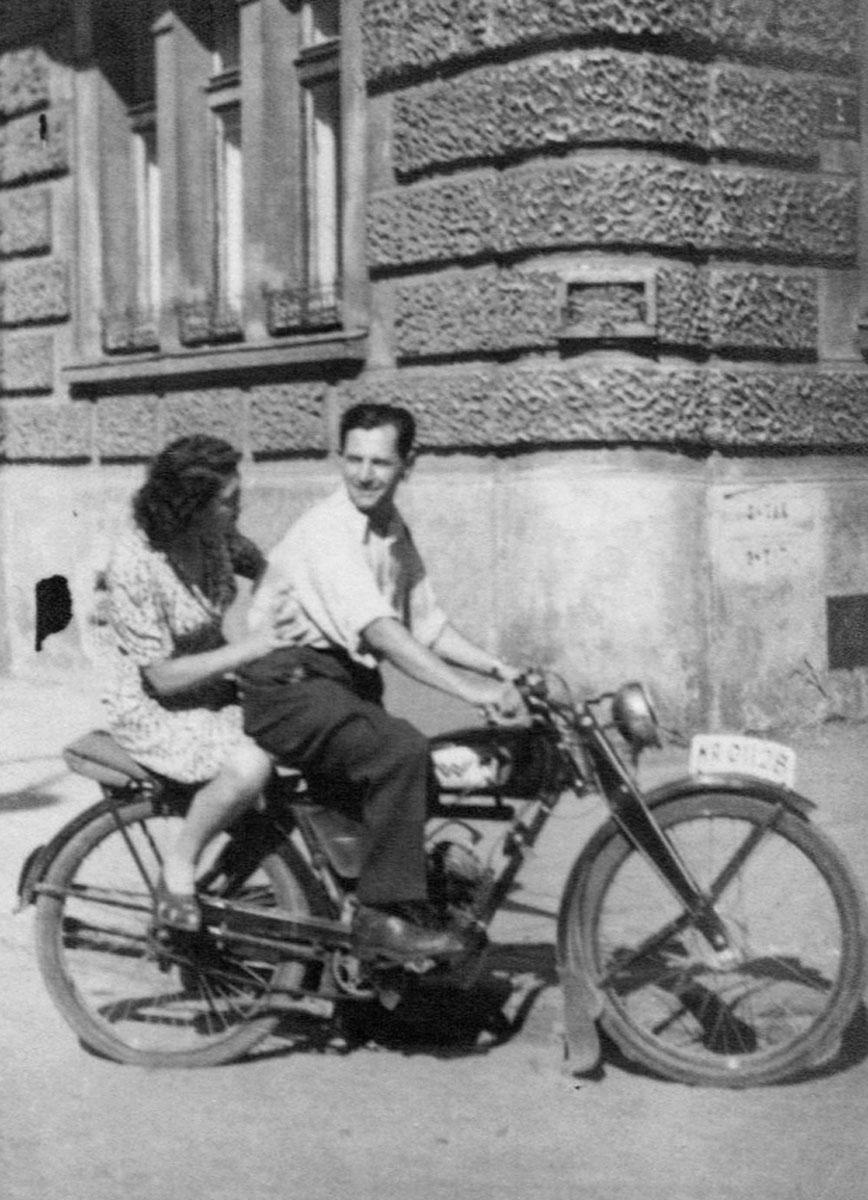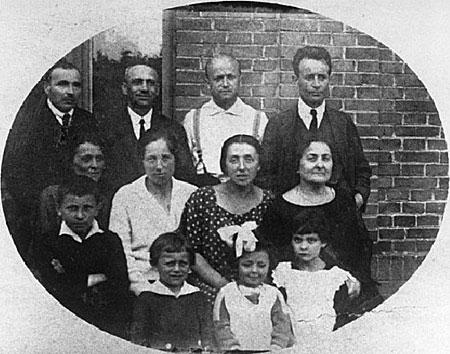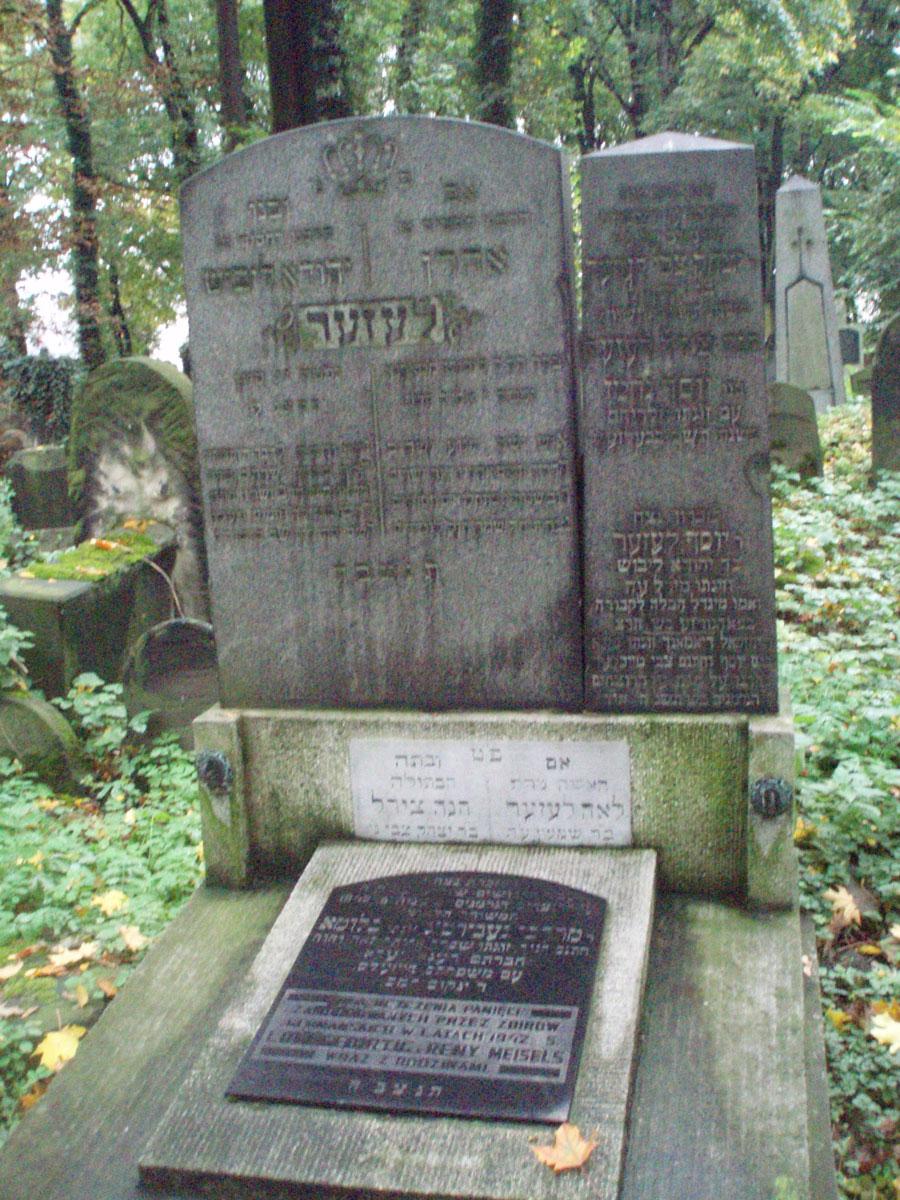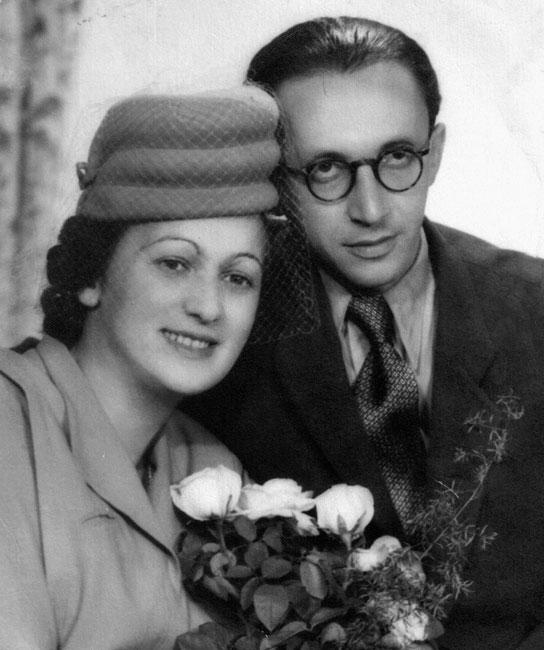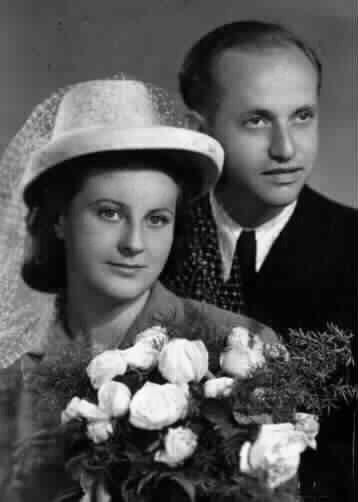In June 1942, Mordecai Gebuertig was murdered during the first round up of Jews in the Cracow Ghetto.
Mordecai and his wife Bluma, had three daughters – Shifra, Chava and the youngest, Lola, born in 1917. Lola was accustomed to singing her father’s songs. At the beginning of the war Lola became engaged to Boas Leser, a native of Cracow born in 1914.
When Mordecai and his wife were sent to the death camps, the three Gebuertig daughters were offered lodgings in a room belonging to Yaakov Leser, Boas’s older brother where they were employed in the cottage industry of bottling various foodstuffs such as tea and baking powder. The youngest Leser son, Shulem, lived there; he was one of the first to be taken for forced labor building the foundations of Plasow concentration camp. Their sister, Perla Leser, was among the first to be employed in Oscar Schindler’s enamel work factory, and thus she was able to survive the war. Boas Leser had been called up for service in the Polish army upon the outbreak of war. With the swift disintegration of the Polish lines of defense, Boas escaped with fellow soldiers to Lvov, then under Soviet control. In 1941, when the Germans captured Lvov, Boas decided to return to his family in Cracow. It was during this period that Lola and Boas became engaged, as Boas was living with his father nearby. In August 1944 Lola and her sisters were deported to Stutthof camp, where all three were murdered.
Boas was also deported and was sent from one forced labor camp to another, but managed to survive. While working in "Ernst Heinkel Flugzeugwerk”, an aircraft manufacturer near Berlin, he was able to craft two bracelets. On one he engraved the list of camps he had passed through and the dates he arrived in each. On the other, he engraved his name, his date and place of birth, his prison number “132162” and signed his handiwork 23/2/1945 Oranienburg. The center of the bracelet consists of a framed photograph of his beloved Lola Gebuertig. He created both items using the metalwork lathe in the factory.
After liberation, Boas returned to Poland to search for his fiancé and his family. He found only his brother Yaakov, and after learning that the whole Gebuertig family had been murdered, the two brothers added the names of Mordecai and Bluma Gebuertig and their daughters Lola, Shifra and Chava on to their mother’s tombstone (she had died before the war). Boas remained in Poland for a further year and became reacquainted with Blanka Parnes whom he knew from before the war. The two moved to Paris, married, and settled in Belgium. In 1950 they came to live in Israel.
The bracelet and the bracelet-link that Boas made during the war were carefully preserved throughout his lifetime. When he passed away in 2006, his daughter Batya Chayko née Leser decided to donate the two items to the Yad Vashem Museum Artifacts Collection.
Batya recalled from her childhood just how dear to her father’s heart the items were. She related how when her daughter went to Poland with a youth delegation, Boas gave them to his granddaughter and asked her to relate their story to the group.
The donation of the artifacts to Yad Vashem enables the carrying out of Boas Leser’s wishes to continue to tell the story of the Gebuertig family and their fate to future generations.
Yad Vashem Museum Artifacts Collection,
Gift of Batya Chayko, Netanya
Many thanks to Lilli Haber, the daughter of Yaacov Leser for the photo of the tombstone in the New Jewish cemetery in Cracow as well as for the information on the Leser and Gebuertig families.
Many thanks to Mr. Nachum Manor for permission to use photos of the Monderer and Gebuertig families.
